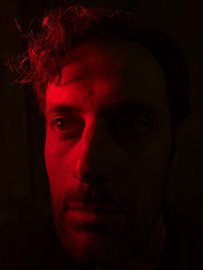Long-Term Projects - 3rd Prize
Ixil Genocide
Daniele Volpe
21 June, 2013
The remains of three civilians murdered by the military in 1986 are buried in Xecol, Chajul, Guatemala.
During the 1980s, in the midst of the 1960–1996 Guatemalan Civil War, the state-backed military identified all indigenous Maya peoples as guerilla supporters. The Ixil Maya community, who live near the Sierra de los Cuchumatanes in western Guatemala, were the targets of a genocide operation. The Ixil were subject to systematic rape, forced displacement, starvation and massacre. By 1996, some 7,000 Ixil had been killed. The violence was particularly extreme from 1979–1985 as successive administrations and the military pursued a scorched-earth policy in the region. A United Nations truth commission later revealed that between 70% and 90% of Ixil villages had been burned to the ground and some 60% of the population forced to flee to the mountains. Victims of the military were often buried in clandestine mass graves, while many survivors in mountain areas, isolated from health care, died from malnutrition and treatable diseases. In 2013, Jose Efraín Ríos Montt, who ruled Guatemala in 1982 and 1983, was tried for genocide and crimes against humanity. Although found guilty, he was acquitted at a second trial—which cited procedural errors unrelated to any of the testimony—and died unpunished five years later. Nevertheless, the trial was seen as a milestone in holding those responsible for the atrocities to account, and as a contribution to an accurate account of what happened in the civil war. Today, many survivors are still searching for the remains of their dead relatives. Exhumations play an important role in gathering evidence of civilian massacres and in reconciling survivors with their grief, as they are at last able to give their loved ones a dignified burial.
The photographer has lived in Guatemala for 13 years and worked as a volunteer with the Recuperation of Historical Memory project, listening to the stories of Guatemalan people. He sees this photo project as his contribution to fortifying the historical memory of the country, as a tool for Guatemalan people so they do not forget.

Daniele Volpe
Daniele Volpe, born in Italy in 1981, is a documentary photographer based in Guatemala. Volpe’s images are chiefly aimed at exploring issues related to human rights and ...
Through our education programs, the World Press Photo Foundation encourages diverse accounts of the world that present stories with different perspectives.
Our exhibitions showcase stories that make people stop, feel, think and act to a worldwide audience.
Our annual contest recognizes and rewards the best in photojournalism and documentary photography.
